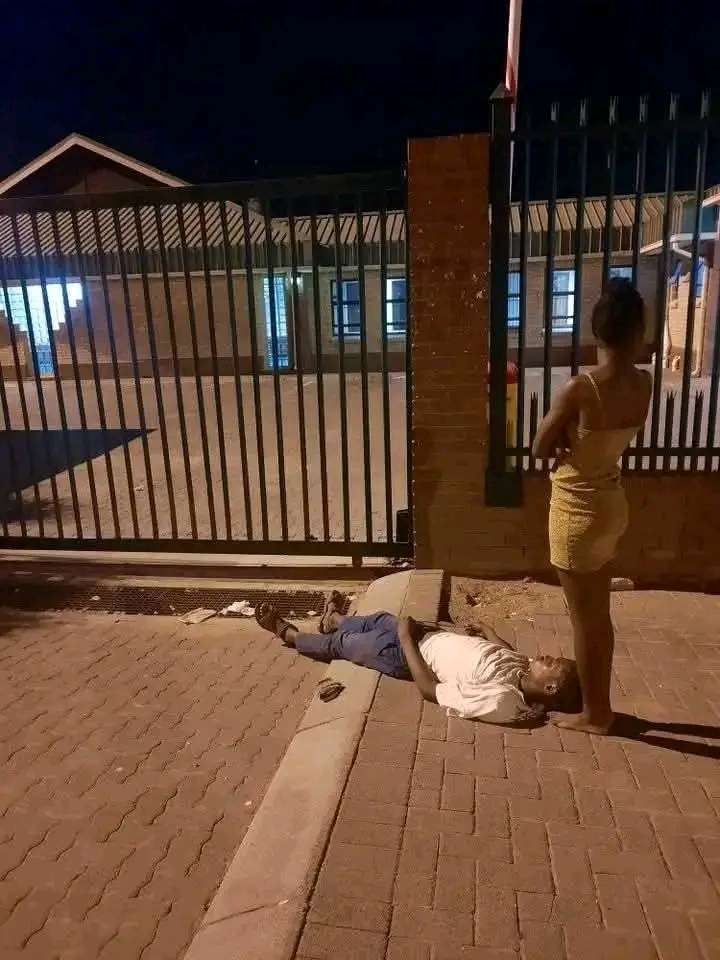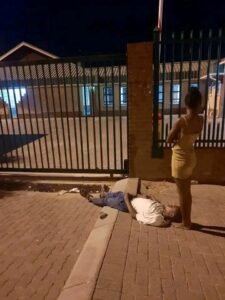
A deeply distressing incident has left the community of Phelindaba, Bloemfontein, outraged after an elderly, sick man was denied urgent medical attention at the MUCCP Clinic — despite the facility claiming to operate 24 hours a day.

The man, frail and visibly unwell, was found lying helplessly outside the clinic late at night. According to witnesses and his devastated daughter, the clinic’s gates were locked, and security guards refused to allow them entry. The reason allegedly given? “We only help women in labour.”
The man’s daughter, who had rushed him to the clinic in hopes of getting urgent help, pleaded with security personnel to assist. But instead of showing compassion, they allegedly stood by, unmoved by the man’s condition. With no ambulance in sight and no medical staff coming forward, she was forced to watch her father suffer outside the very clinic that should have been a place of care and support.
Desperate and with no alternatives, she remained by her father’s side, waiting and hoping for assistance. But none came. An ambulance was never dispatched, despite their critical need and the late hour. Eventually, well after midnight, a kind-hearted taxi driver stepped in and drove them home — but without the medical help the man so urgently needed.
This heartbreaking experience has sparked outrage and raised questions about the integrity of healthcare promises in the area. MUCCP Clinic publicly advertises that it provides 24-hour services — yet when an elderly man required emergency help, the doors were shut, and the response was cold.
Residents are demanding answers and accountability. Many say this isn’t an isolated case and that poor service at clinics — especially during nighttime — has become an alarming pattern. They want the Department of Health to intervene, review the clinic’s operations, and ensure that no one is ever left to suffer at locked gates again.
Community members are also calling for better training of security staff at medical facilities. “They’re the first point of contact. They should be taught to act with empathy and urgency, especially when it’s a life-or-death situation,” said one concerned resident.
The man’s daughter, still shaken by the ordeal, says she doesn’t want anyone else to experience what she and her father went through. “He was in pain, and I was helpless. I kept thinking, what if he dies right here on the pavement?” she said.
This painful story serves as a wake-up call to improve after-hours healthcare services and restore dignity to patients — especially the elderly and vulnerable — who deserve more than locked gates and cold refusals.


